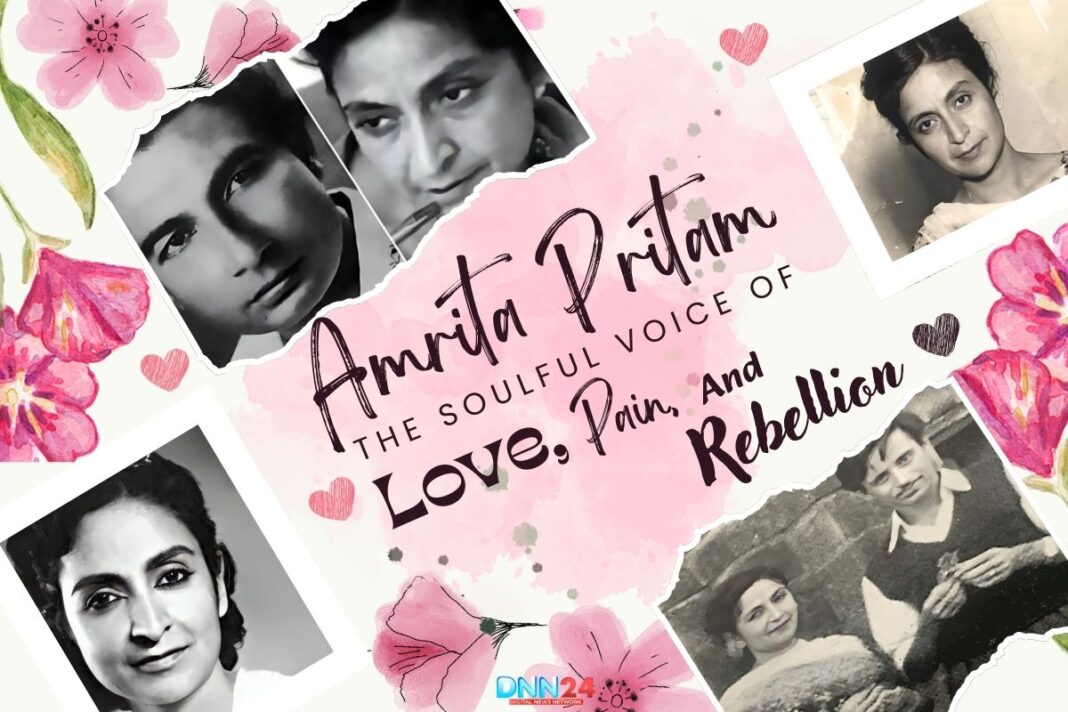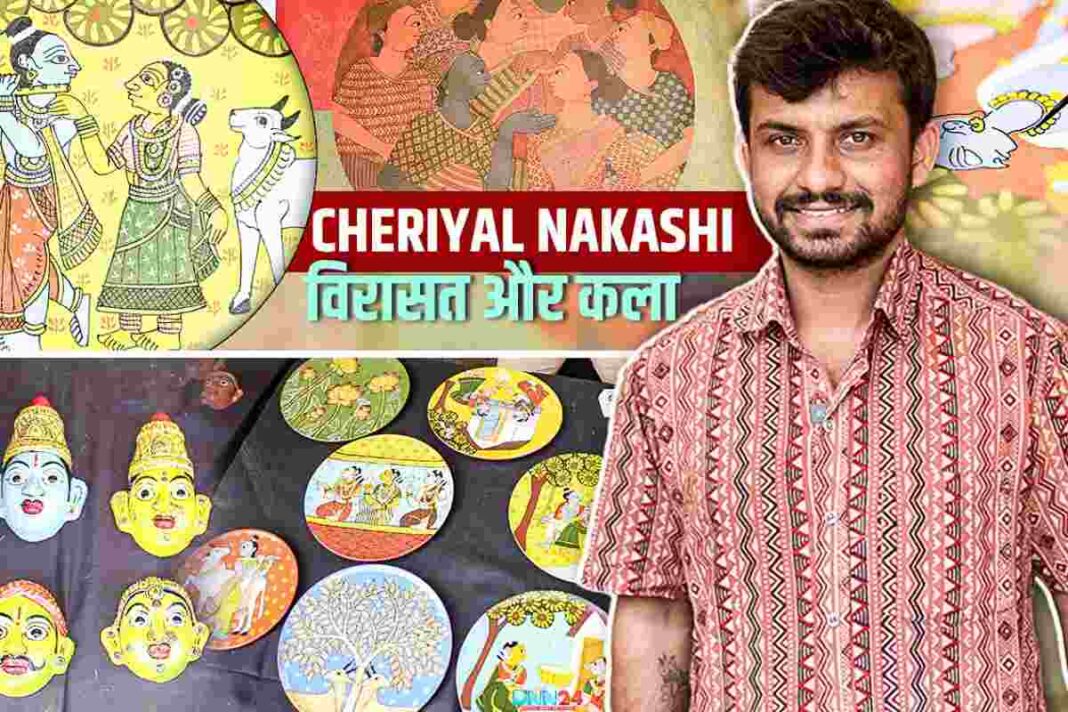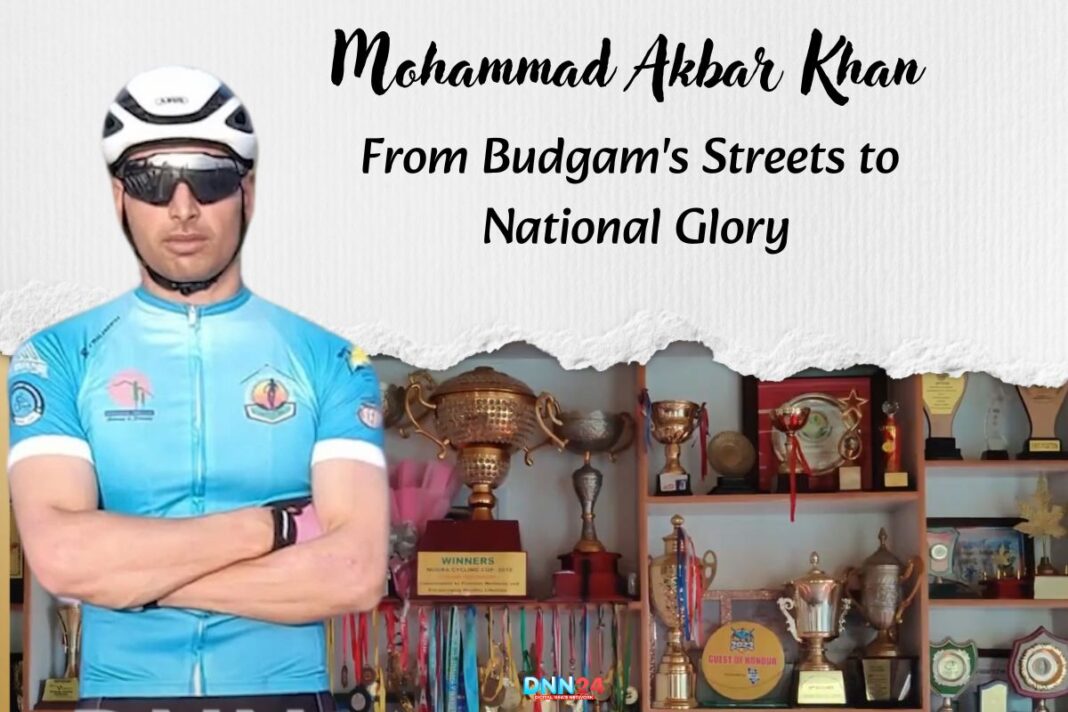Amrita Pritam, the first woman of Punjabi poetry, was born on 31 August 1919 in Gujranwala, Punjab, British India. Her existence was like a flowing river—sometimes peaceful, sometimes turbulent, always reaching for the ocean of truth. She was the only child of Raj Bibi, a school teacher, and Kartar Singh Hitkari, a poet and scholar. From infancy, words were her companions, and anguish became her inspiration. When her mother died away, Amrita was barely eleven. The quiet of loss overwhelmed her heart, yet she poured her sorrows into poetry. She began writing at an early age, her pen shaking with the weight of sadness and aspirations. In the alleyways of Lahore, she discovered her voice, and soon, the world found her words.
Amrita’s poetry was simple, but it reached the darkest recesses of the heart. She wrote of love, sorrow, and desire, and every word seemed like a sigh in the night, a melody in the wind. Her path from a timid girl to a revolutionary poetess was not simple, but her bravery was her companion. She joined the Progressive Writers’ Movement, and her pen became a weapon against injustice. Amrita’s life was a canvas painted with the colours of hope, anguish, and rebellion—a genuine artist, a true lover.
Aaj main apne ghar di talash vich hoon,
Amrita Pritam
Jithein meri yaadan vasdiyaan ne,
Mera pata koi puchhe,
Taan keh dena, hawa di lehar vich
The Unheard Kissey: Stories Behind the Poet’s Smile
Tales of Courage, Whispers of Pain
Behind Amrita Pritam’s beautiful face were tales that the public seldom heard. She worked at a radio station in Lahore, her voice reverberating across the airwaves, bringing poetry of hope to every corner. When Partition tore the country and hearts apart, she was forced to leave her beloved Lahore and travel to India. The agony of abandoning her origins, her hometown, her memories—she carried all of it in her poems. She became the voice of millions who lost everything in the turmoil of Partition.
One of the untold legends is how she would sit for hours, lost in meditation, her eyes looking for answers in the sky. She was not merely a poet but a healer for shattered spirits. Amrita assisted many refugees and offered her food, house, and words. She was a mother to the lost and a friend to the lonely. Her generosity was as legendary as her poetry. Even after reaching celebrity, she remained modest, always willing to listen, always ready to love.
Ik si Anita,
Amrita Pritam
Usdi akhaan vich dukh di parchai si,
Zindagi di raah vich,
Usne apne supne gawaaye si
Love Life: The Saga of Sahir, Imroz, and Amrita
Ek Adhuri Dastaan, Ek Amar Prem Kahani
Amrita Pritam’s love life was as lyrical as her verses—full of desire, stillness, and unsaid words. She married Pritam Singh in 1935, but their love was like poetry without rhythm—beautiful but unfinished. In her heart, she loved another—Sahir Ludhianvi, the great poet. Their love was never realised, but it survived in quiet looks, shared smokes, and poetry penned for one other but never spoken aloud.
Mujhe bhi koi jangli phool do,
Amrita Pritam
Shehar ki bheed mein kho gayi hoon,
Khushboo se bhar do zindagi,
Aansuon ko muskurahat mein badal do
Amrita and Sahir’s tale was one of desire. She would gather the cigarette stubs he left behind, and he saved the cup from which she sipped tea. Their love was never uttered, but it was forever. When Sahir drifted away, Amrita sought refuge in the embraces of Imroz, an artist and writer. Imroz adored her without restrictions, without demands. For forty years, they lived together, not as husband and wife, but as soulmates. Imroz made her book covers, painted pictures, and filled her life with quiet adoration.
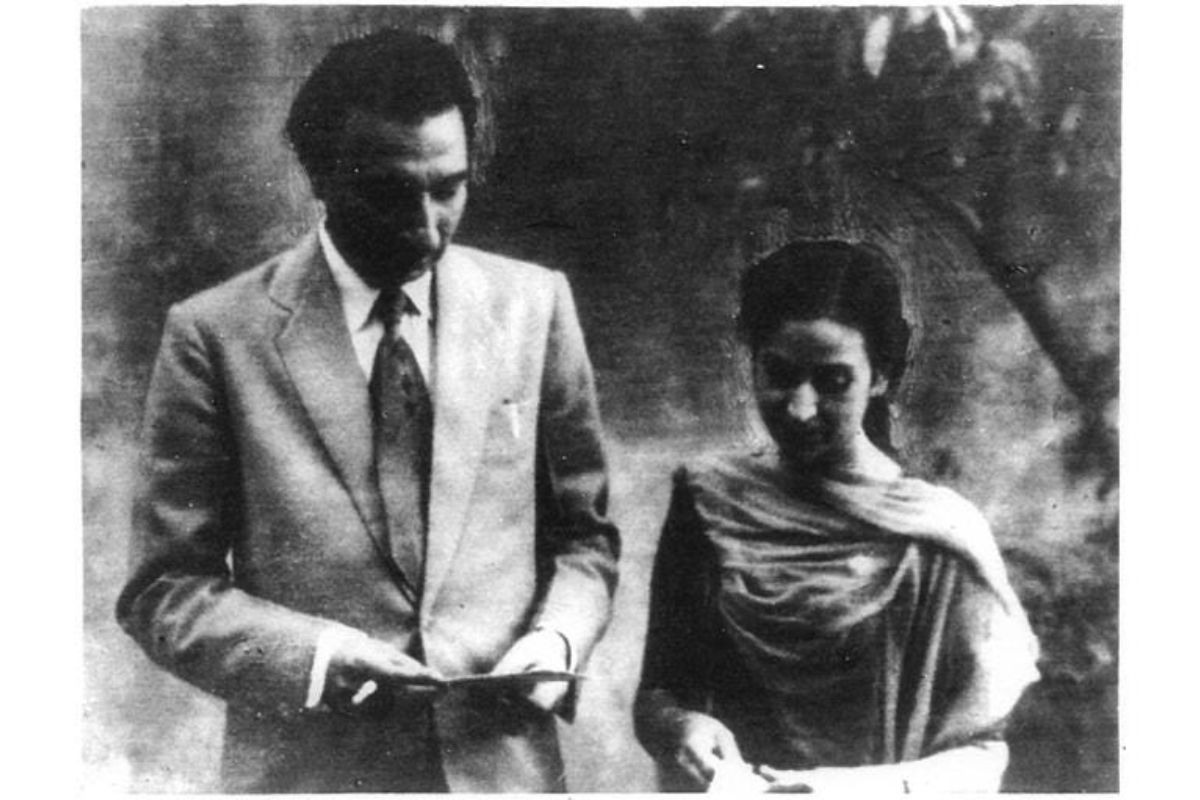
Their love shattered all conventional standards, but it was pure, honest, and forever. Amrita’s autobiography, Rasidi Ticket (“Revenue Stamp”), reveals the narrative of her heart—its scars and mending. She demonstrated that love is not about possession but about presence.
Rasidi ticket te likhi meri kahani,
Amrita Pritam
Zindagi di kitaab vich,
Har panne te dard likheya,
Par pyaar di mohar lagi
Married Life: Between Compromise and Freedom
A Marriage of Shadows and Light
Amrita’s marriage with Pritam Singh was planned, a union of families rather than souls. They had two children, a boy and a daughter, but the link was never strong. Amrita felt confined, her soul aching for liberation, her heart looking for meaningful friendship. Silence, misunderstandings, and the steady withering of emotion distinguished the marriage. In 1960, she ultimately left her husband, preferring loneliness over a loveless existence.
Dard de sandesan,
Amrita Pritam
Hawa de raahi aunde,
Dil diyan gallan,
Chup chap sun laind
Leaving her marriage was not simple. In those days, society frowned upon such daring. But Amrita was never terrified of the world; she listened solely to her heart. She became an inspiration for other women, telling them that it’s better to walk alone than to live a lie. Her existence with Imroz was not constrained by rituals but by respect and affection. They shared everything—words, silences, dreams, and even grief. Together, they established a universe where love was the only law.
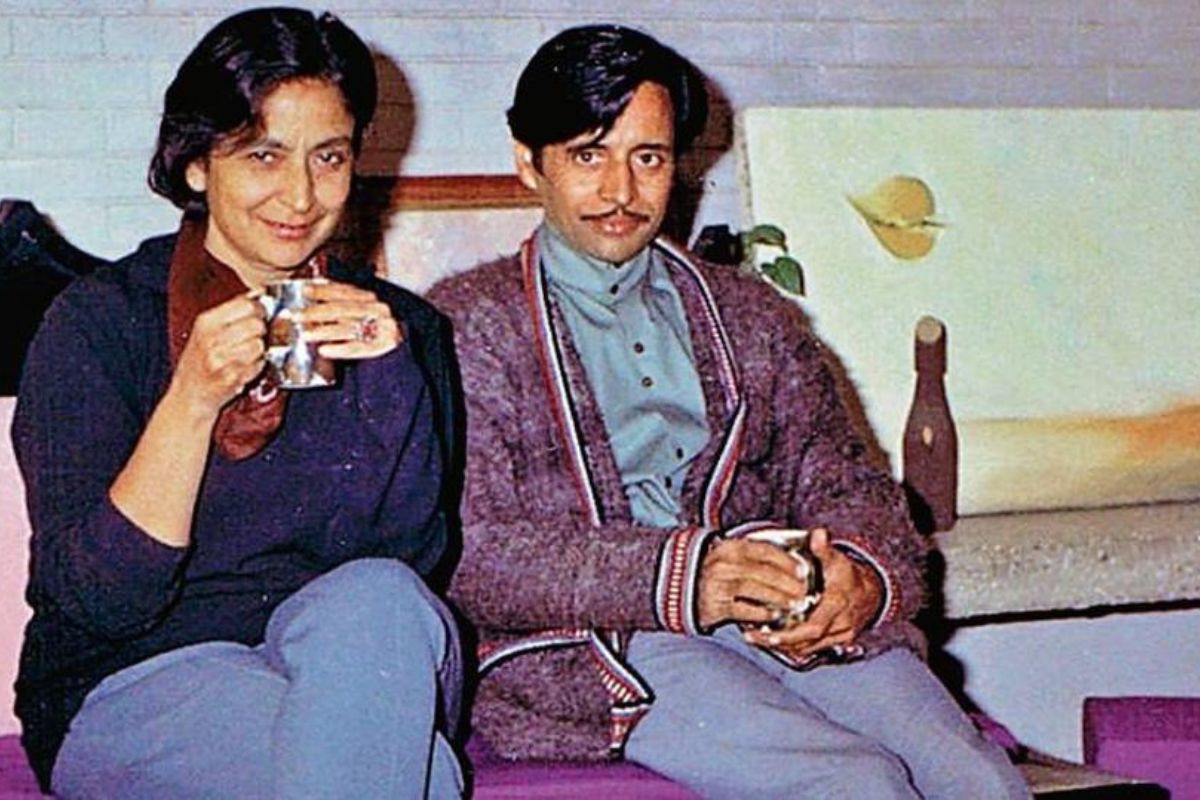
Amrita’s Nazm: The Heartbeat of Her Poetry
Nazm: The Song of Her Soul
Amrita Pritam’s Nazm—her free verse poetry—was the song of her soul. Unlike conventional poetry, Nazm has no predetermined rhyme or rhythm. It runs like a river, conveying the poet’s ideas from one beach to another. Amrita’s Nazms were simple but profound. She wrote about love, suffering, women’s problems, and the scars of Partition. Her most renowned Nazm is “Ajj Aakhaan Waris Shah Nu,” an elegy to the Punjabi poet Waris Shah, penned amid the horrors of Partition. In this poem, she calls for Waris Shah to experience the sorrow of Punjab, to write anew, and to mend the wounds of her home.
Ajj aakhaan Waris Shah nu,
Amrita Pritam
Kiton qabraan vichon bol,
Te ajj kitaab-e-ishq da,
Koi agla warka phol
Her Nazms were not simply poetry; they were pleas for justice, hymns of hope, and prayers for love. She used simple words, yet their meaning was profound. Each Nazm had a beginning, a journey of ideas, and a strong ending. Amrita’s poetry was like a mirror—showing the world its genuine face, hidden scars, and buried dreams.
The Power of Simplicity: Amrita’s Unique Style
Words Like Dewdrops, Feelings Like Fire
Amrita Pritam’s writing style was unique—she employed simple words, yet her emotions were powerful. Her remarks were like dewdrops on grass—gentle, innocent, and pleasant. She thought that poetry should touch the heart, not just the head. Her poetry was simple to grasp but difficult to forget. She wrote about ordinary people, daily hardship, and the joy of little moments.
Mann yog tann bhasm bhaya,
Amrita Pritam
Prem agni vich jal gaya,
Ruh di talash vich,
Sab kuch kho gaya
She never cared about recognition or prizes, yet she earned many—the Sahitya Akademi Award, Padma Shri, Padma Vibhushan, and the Jnanpith Award. For her, the true joy was when someone read her poetry and felt less alone. Her poetry was a bridge between hearts, a light in the darkness, a companion in suffering. Amrita’s simplicity was her strength, and her honesty was her power.
Amrita’s Legacy: The Eternal Flame
A Life That Inspires, A Love That Never Dies
Amrita Pritam died suddenly on 31 October 2005, yet her words are still alive, blazing like an everlasting flame in the hearts of her readers. She authored more than 100 books—poetry, novels, essays, biographies, and collections of folk tunes. Her book Pinjar (“The Skeleton”) symbolised women’s anguish and courage and was adapted into an award-winning film. Her book, Rasidi Ticket, is a monument to her bravery and honesty.
Main tainu phir milangi,
Amrita Pritam
Ik khushboo ban ke hawaa vich,
Ya shayad ek kiran ban ke,
Tere chehre te chamkangi
Amrita’s life was a poem—unfinished but exquisite. She showed the world that love is not about possession but about presence. That anguish may become poetry, and poetry can heal the world. Her legacy is not simply in her works but in every heart that dares to love, dream, and rebel. She will always be remembered as the queen of hearts, the voice of the voiceless, and the poet of love and grief.
Conclusion: Amrita Pritam—A Name Written in the Sky
The Last Word, The First Dream
Amrita Pritam’s narrative is not simply about a poet—it is about every woman who dared to dream, every lover who dared to love, and every soul who ventured to rebel. Her life was a Nazm—free, courageous, and full of emotion. She shattered the ties of convention and, in doing so, set her heart free. Her love tales, unheard kisses, and modest but powerful Nazms are treasures for years to come.
Shah ki kanjari,
Amrita Pritam
Prem di veerani,
Tere shehar vich,
Akeli si kahani
Amrita Pritam is not simply a name—she is an emotion, a movement, a legend. Her words will resonate forever, like the sound of love in the still night or the smell of hope in the morning air.
Also Read: Sahir Ludhianvi: The Magician of Words and Emotions
You can connect with DNN24 on Facebook, Twitter, and Instagram and subscribe to our YouTube channel.

